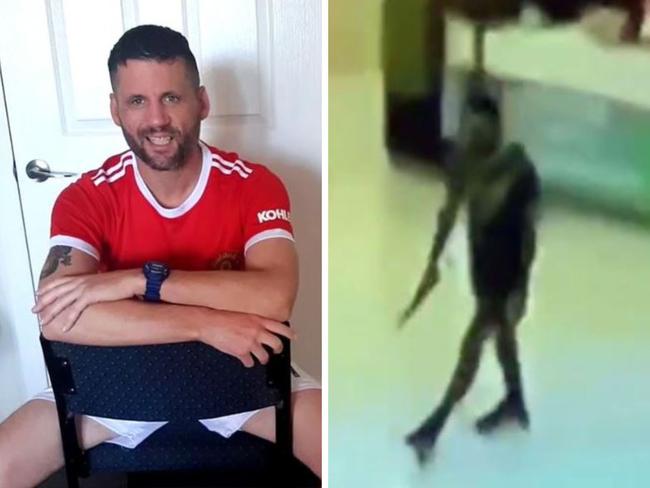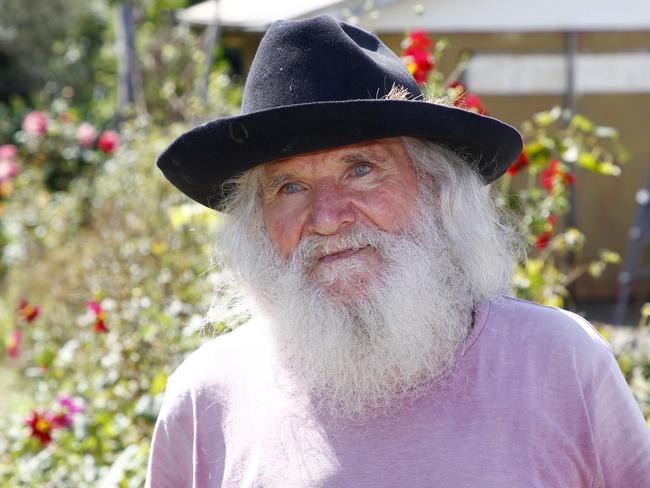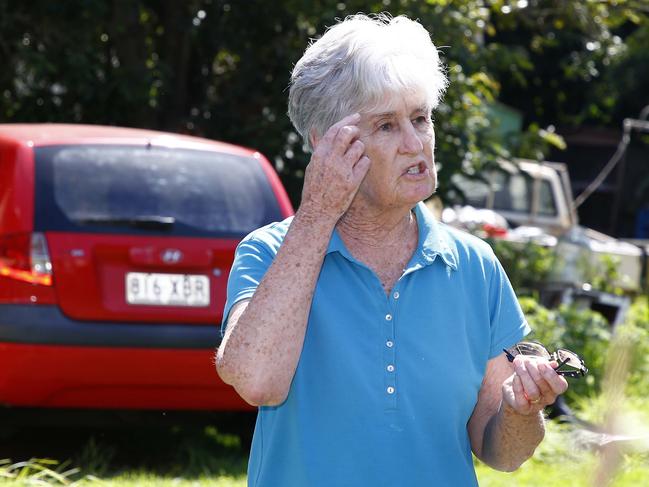Bondi killer’s knife obsession flagged by cop - but not acted on
Queensland police officers want “confusing” legislation surrounding when they can legally detain a person for a mental health assessment rewritten, the Bondi Junction stabbing inquest has heard.
NSW
Don't miss out on the headlines from NSW. Followed categories will be added to My News.
Westfield Bondi Junction killer Joel Cauchi should have received emergency medical intervention for his mental health following an interaction with police which prompted one officer to describe him as having a “hard on” for knives, a senior police official has told an inquest.
Queensland police inspector Bernard Quinlan, the manager of the vulnerable persons unit, praised the actions of senior constables Matthew McDonnell and Hope Porter who responded to the Cauchi family home in Toowoomba on January 8, 2023, after he called emergency services to say his father had “stolen” his military weapons.
The inquest into the Bondi massacre heard the two officers were at the home for 40 minutes and spoke to Cauchi and his mother, Michelle, in separate conversations.
The court heard Michelle reported Cauchi had flown into a “rage”, began “screaming” and physically assaulted his father when he found out his beloved weapons had been taken away.

Cst McDonnell told his colleague Cauchi seemed to have a “real hard on” for the knife collection, but also found he was coherent and calm throughout the conversation, if a bit fidgety.
The pair ultimately determined they could not forcibly detain him for a mental health assessment under Queensland public health laws because he didn’t meet the threshold of being at “immediate risk of self harm”.
Insp Quinlan called for the law to be overhauled to allow police a wider discretion to detain people for mental health evaluations.
However, he said the two officers’ actions that day, given what they knew at the time, were “reasonable”.
“With how direct that legislation is it doesn’t allow much - you can’t defer from the actual specific wording of the legislation too much,” he said, when asked if the officers should have detained Cauchi.
“Given the presentation of Joel at the time … their actions were reasonable.”

He said in hindsight, had police known of Cauchi’s obsession with dangerous weapons, his alarming internet searches including looking up serial killers, and his deteriorating mental health, a “different action” may have been pursued.
“It paints a clear picture that there was a need for an emergency examination at some point in time,” Insp Quinlan said.
The court previously heard Cauchi, a diagnosed schizophrenic, had been off his medication and effectively “lost” to the mental health system for almost five years when he carried out a three-minute knife rampage through Westfield Bondi Junction on April 13, 2024.

Six people - Ashlee Good, 38, Dawn Singleton, 25, Jade Young, 47, Yixuan Cheng, 27, Faraz Tahir, 30, and Pikria Darchia, 55 - were killed in the attack, while a further 10 were wounded, before a “floridly psychotic” Cauchi was shot dead by hero NSW cop Inspector Amy Scott.
His interactions with police and the Queensland mental health system in the years before the stabbings are key points of examination in the inquest, which is currently in its second week.
Meanwhile, the court heard Cst McDonnell sent an email later to a dedicated mental health intervention officer in the hours after the 2023 call out asking for Cauchi to receive a follow up in the next few days.
The request ultimately went unanswered due to an “oversight” by the officer in the position at the time.
Each of the Queensland officers who gave evidence at the inquest agreed it was a “missed opportunity” to reintegrate Cauchi into the mental health system.
The inquest, before State Coroner Teresa O’Sullivan, continues.
Lifeline: 13 11 14, lifeline.org.au
SANE Support line and Forums: 1800 187 263, saneforums.org
Headspace: 1800 650 890, headspace.org.au
Beyond Blue: 1300 224 635, beyondblue.org.au





